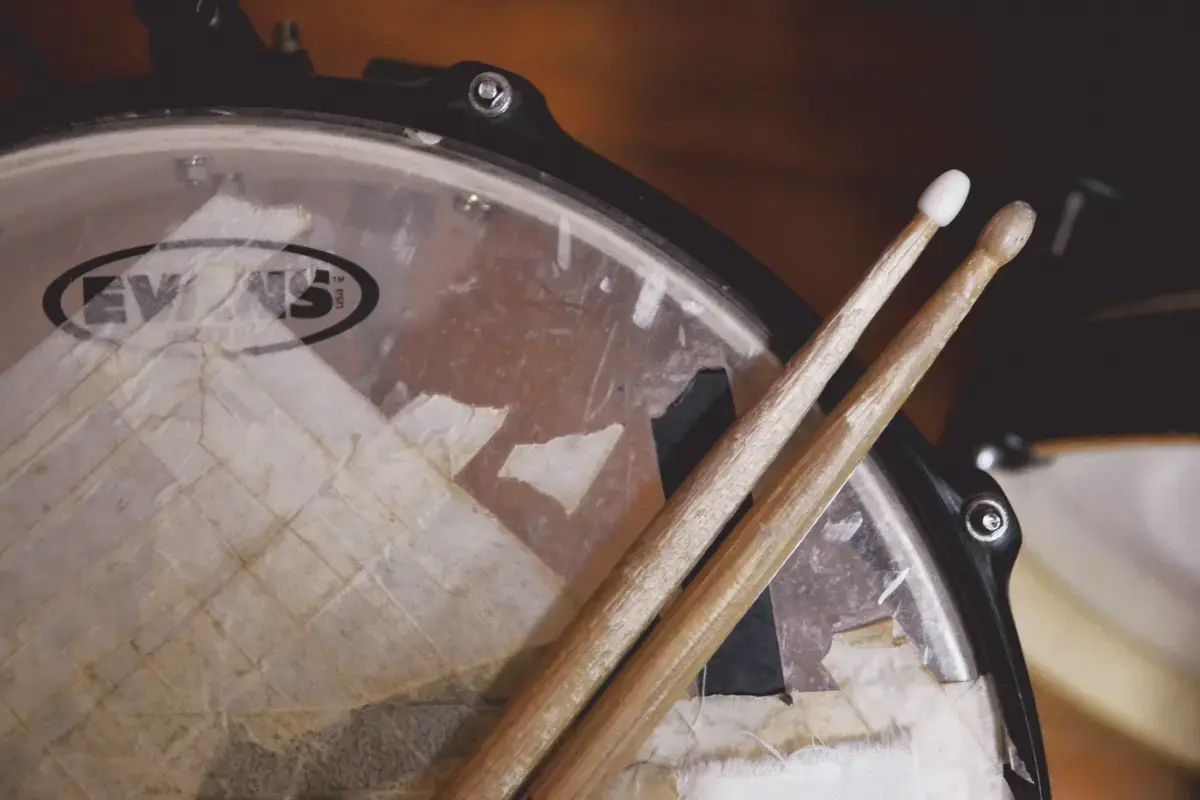
Drum Instructor Job Description
What is a Drum Instructor Professional?
A drum instructor is a professional who teaches people how to play drums. Drum instructors typically work in music schools, colleges, or private studios. They may also give workshops and clinics. Most drum instructors teach students of all ages and levels, from beginners to advanced players. They begin by assessing a students skill level and understanding of music theory. They then develop a lesson plan that matches the students needs and goals.

What does a Drum Instructor Expert do?
Drum instructors typically use a combination of demonstrations, verbal explanations, and hands-on practice to teach their students. They may also provide written materials, such as sheet music or exercises, for their students to take home and practice. In addition to teaching technique, drum instructors also focus on helping their students develop musicianship skills such as reading music notation, counting rhythms, and improvising. It is important for drum instructors to be patient and supportive, as learning drums can be challenging at times. The best way to become a successful drum instructor is by having extensive experience performing and/or teaching drums. Many drummers who wish to pursue a teaching career first earn a degree in Music Education or a related field. There are also many organizations that offer certification programs for potential teachers.

What are the Skills of a Drum Instructor?
Being a drum instructor requires a great deal of skill and experience. To be a successful drum instructor, you need to have excellent timekeeping skills, be able to play a variety of genres, and have extensive knowledge of music theory. You should also be patient, articulate, and able to adapt your teaching style to different students. Timekeeping skills are essential for any drummer, but they are especially important for instructors. Drummers must be able to keep strict time while playing, so that their students can follow along easily. This can be difficult, as there are many moving parts in a drum set. Good instructors will make sure that their students are keeping time by using methods such as clapping or counting out loud. They will also provide feedback on each students performance. As an instructor, you should also be able to play a variety of genres. This will allow you to teach your students how to play different styles of music. It is also useful for demonstrating concepts such as groove and feel. Many drummers learn one style of music and then find it difficult to branch out into other genres; by being versatile, you can show your students that there is more than one way to approach the drums.

What makes an Expert Drum Instructor?
In addition to possessing excellent timekeeping skills and being versatile, successful drum instructors must also have extensive knowledge of music theory. Music theory is the study of how music works; it encompasses everything from scales and chords to rhythm and melody. A good understanding of music theory will allow you to explain concepts clearly to your students, and help them understand how these concepts relate to the drums. Without this knowledge, it would be difficult (if not impossible) to teach drums effectively. Finally, patience, articulation, and adaptability are essential qualities for any good teacher - not just those who teach drums! Patience is necessary when dealing with beginners who may not grasp concepts quickly; articulation is important for clear communication; and adaptability ensures that you can tailor your instruction methods to each individual students needs . By having these qualities , you can ensure that your students receive the best possible instruction - which ultimately leads to them becoming better drummers themselves!

What level of Experience & Qualifications are required to be a Drum Instructor?
Extensive experience in playing drums: The instructor should have a wealth of experience and knowledge about drumming, ranging from technique to music theory. 2. Training in drum instruction: A good instructor should be trained in teaching techniques and curriculum development that will help their students succeed. This could include training on how to structure lessons, create meaningful activities for the student, provide feedback effectively etc. 3. Qualifications: Depending on the country or region, there may be specific qualifications or certifications required to teach drums within schools or private institutions (such as a Bachelors degree). Check with local regulations before applying for jobs! 4. Education: Most instructors are expected to have at least some understanding of music theory and/or education related topics such as learning styles and assessment strategies; this can usually be achieved through taking classes at colleges or universities, although self-learning is also possible if pursued diligently enough! 5. Ability to read sheet music: It is essential that drum instructors have an intermediate level of ability when it comes to reading standard notation so they can properly explain concepts like rhythm & meter, time signatures etc., which are all integral parts of any successful lesson plan!

What is the Salary of a Drum Instructor?
A junior drum instructor typically earns between $7 and $15 per hour, depending on their level of experience. Senior instructors may earn up to $20 or more per hour. The salary for a beginning drum instructor can be quite low; the average starting pay rate is around minimum wage, though some experienced teachers are able to command higher rates. As an instructor gains experience and builds a reputation in the field, they can increase their rates accordingly. For those at the professional level with extensive experience teaching drums, salaries tend to range from $30-35/hour upwards of as much as $50/hour or more for highly sought after instructors who have established themselves in the industry or teach advanced students. Many also charge additional fees for private lessons outside of regular class times.

What are the Working Conditions for a Drum Instructor?
The general working conditions for a drum instructor can vary depending on the employer, but typically they involve teaching private or group lessons to students of varying ages and abilities. This may include one-on-one sessions, small group classes or larger ensemble rehearsals. A drum instructor is expected to provide guidance in playing techniques and music theory as well as offering advice about equipment selection and maintenance. They should also be able to motivate their students through positive reinforcement and constructive criticism when needed. In addition, a successful drum instructor may need to be available for occasional performances or recordings with their students’ bands or other ensembles. They must also stay up-to-date on new methods of instruction and musical trends in order to ensure that their teachings are relevant to modern audiences. Finally, instructors must demonstrate patience while dealing with challenging situations (such as scheduling conflicts) while maintaining professional boundaries at all times by adhering strictly to school/organization policies related to student safety and confidentiality.

What are the roles and responsibilities of a Drum Instructor?
Teach students proper grip and hand placement for drumming
Show students how to hold the sticks correctly
Introduce different sticking patterns and rudiments
Explain how to produce various sounds on the drums
Help students develop a good sense of timing and rhythm
Work on developing coordination between the hands and feet
Help students develop stamina and endurance while playing
Encourage students musical creativity
Help student learn to read sheet music
Incorporate music theory into lessons
Play along with students to help them keep tempo
Correct posture and form when necessary
.Reinforce positive behavior
.Offer constructive criticism
.Encourage practice outside of class
.Set up band rehearsals
.Book gigs for the band
.Help market the band
.Manage band finances 20 .Be a positive role model

Where can I find Drum Instructor jobs?
- Create a profile on gigexchange and promote your Drum Instructor skills to advertise you are Open to New Work Opportunities
- Ensure your Resume (or CV), or online work profile is up to date and represents your skills and experience. Ensure your reputation reflects your ability & attitude.
- Apply for Drum Instructor Jobs advertised on gigexchange.
- Practise Drum Instructor interview techniques to ensure you represent your personality and ability succinctly and confidently.
- Accept the job offer if the salary meets your expectations and the employer mission and purpose reflects your core values.
Jobs
What are the best job boards for Drum Teacher jobs?

How can I hire Drum Instructor staff online for my business?
The best job board for recruiting Drum Instructor experts is gigexchange.com. Advertise full-time, part-time or contract jobs to find, hire & recruit trusted, experienced and talented Drum Instructor candidates near you.

Are Drum Instructor roles in demand in 2026?
Drum Instructor experts are still in high demand in 2026. If you are an experienced Drum Instructor or looking to train and become one. The job market is looking strong for Drum Instructor jobs near me.